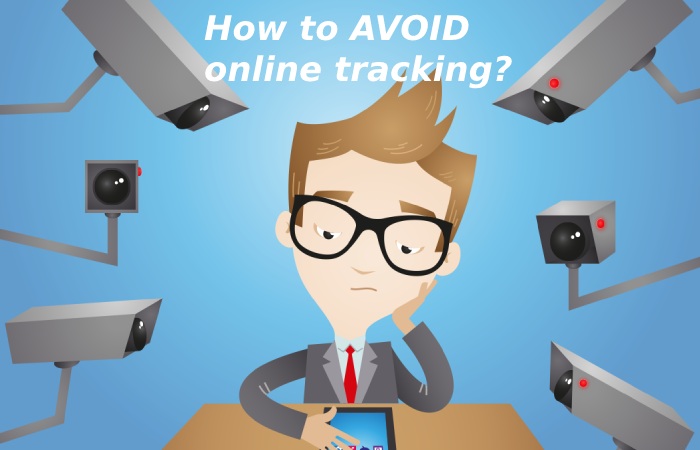Online privacy has always been a concern in today’s digital age. Most people probably aren’t aware that their online activities are tracked, from the buttons and ads they click on to their shopping habits and online dating.
Staying safe online means, you will need to use additional software to do so. This is how security works; it is the steps you will take to achieve online privacycritic. You do this by using Security software that is designed for your safety and anonymity.
Let’s be clear about one thing: almost everything that is done or introduced on the Internet is not private. It’s chilling when you think about it, but people are analyzing and studying your online behaviour with the help of cookies.
What are cookies?
No, we’re not talking about your favourite snack. Technical jargon aside, cookies were initially designed to help your computer remember your online activities. For example, when you log in to a particular website, a cookie will tell your computer that you are already logged in. So when you close the window and open a new one, you will still be logged into your account.
However, cookies can also track buttons, advertisements and clicked links. It, in turn, can be used to follow the pattern of your online behaviour.
What information is collected and tracked?

It may surprise you, but the reality is that almost all the information you put on the network can track with the help of cookies. It includes personal information such as your location, zip code, ethnicity, personal finances, religious beliefs, health issues, political affiliations, sexual preferences, marital status, travel plans, and even your taste in movies and music.
These cookies can also track which pages you open, which part of the pages you browsed, how long you were on those pages, which exact buttons were opened, etc.
Privacy and security have been hot topics since the dawn of the Internet. If we need Privacy to protect information, you would think that with the technological improvements we have today, we would have developed a privacy online security program and ultra-efficient privacy protection software to safely browse the Internet.
All of this is done with one goal in mind: targeted advertising. With all the above information and more, advertisers can specifically target their ads to the right market, significantly increasing revenue.
Did you know that your favourite search engines and social networks also track your information?
Search engines like Google keep a record of all your search activities. It will undoubtedly help Google in its advertising campaign because it already knows what you usually look for.
For example, if you regularly search for a math teacher in your country through Google, you’ll often see math teacher ad links at the top of search results. Google benefits from these ads, and when you click the link, you’re putting money in their pockets.
If you think your social media accounts are free of suspicion, think again. Facebook also tracks your activities and behaviour through “social media plugins,” such as its “Like,” “Share,” and “Recommend” buttons. By getting an idea of what you usually “like,” Facebook strategically selects the ads appearing on your page.
You can verify this for yourself by comparing the tiny ad links in your account to those of your friends. They will probably be different because of the difference in your Facebook activities. The same goes for Twitter, where your tweets on specific topics reveal your preferences.
Who tracks your online behaviour?
Aside from the companies mentioned above, a much larger group of people focus on tracking your online activities: data brokers.
They collect and analyze consumer data and sell it to third parties. They build a profile of their activities and behaviour. But don’t worry: your name won’t appear, but a specific ID they used to classify consumers into certain categories that fit the needs of the third party.
This information is often sold to sellers and advertisers for a high price. Therefore, the industry has become a multi-billion dollar business in which large companies pay a lot of money to reach their target market directly.
How to AVOID online tracking?

Step 1: Get a VPN
First, we’d like to take this opportunity to remind you that an Expressvpn VPN effectively blocks geolocated advertising. When you’re on the web without a VPN, online advertisers know your IP address, ISP, organization, zip code, region, city, and country.
But when you use VPN, your actual IP address is hidden behind an anonymous IP address. So online marketers, search engines, and websites know nothing about your personal information.
However, there are other precautions you can take to ensure your digital footprint is as anonymous as possible and prevent online tracking.
Step 2: Change your cookie settings
You will set your cookies to expire when you exit your browser and not allow third-party cookies to install.
Firefox
To do this, go to Edit > Preferences > Privacy. Under “History,” choose the “Use custom settings for history” drop-down. Under “Accept cookies from sites”, uncheck “Accept third-party cookies”, and just below, select “Keep until you close Firefox:”
Chrome
To do this, locate the Chrome settings menu, which should be the hamburger icon at the top right of your browser. From this menu, go to “Settings”, scroll to the bottom and click “Show advanced settings”.
Under “Privacy,” click Content Settings. Select “Keep local data only until you exit the browser / for the current session”, and check “Block third-party cookies and site data:”
Step 3: Install HTTPS Everywhere
Install the EFF HTTPS Everywhere browser plug-in. It maximizes your use of HTTPS to ensure that all your online interactions are end-to-end encrypted with SSL





